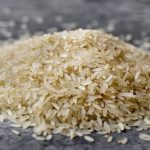In the News
Seattle Collects More Than $4M from New Tax on Sugary Beverages
May 9, 2018 | The Seattle Times
In a follow-up on Seattle’s soda tax implemented Jan. 1, 2018, the Seattle Times reports on revenues and consumption data collected so far. The Nutritional Sciences Program’s Associate Professor Jesse Jones-Smith shared an update on UW’s study of the impact. She is co-lead of the study.
Read articleHere’s One Obamacare Rule That’s Still Intact: Calorie Counts
May 8, 2018 | KUOW
As the nation joins local King County in requiring calorie information on menus, Nutritional Sciences Program Director Adam Drewnowski shares his expertise on how the new requirement might impact people’s food decisions.
Read articleNutrition Affects Cancer Risk
April 17, 2018 | Monterey Herald
Registered dietitian nutritionist Barbara Quinn reflects on the impact of nutrition on cancer risk. Quinn quotes Nutritional Sciences Program core faculty member Johanna Lampe who shares her expertise from Fred Hutchinson Cancer Research Center on how beneficial microbes in our gut may help fight off the development of colon cancer.
Read article
The under-recognized power of preconception nutrition
October 21, 2019 | The Seattle Times
This story highlights the importance of proper nutrition before and during pregnancy and quotes Judy Simon, a registered dietitian and clinical faculty member in nutritional sciences at UW. The story is authored by Carrie Dennett, a registered dietitian nutritionist who is an alumna of the UW Nutritional Sciences Program (MPH/GCPD ‘2013).
Read articleDoes Coffee Cause Cancer?
April 4, 2018 | KUOW
Nutritional Sciences Program Lecturer Anne-Marie Gloster, RD, PhD, MPH who teaches one of the few coffee courses at a public research institution in the U.S., weighs in on the risk of cancer from coffee in the wake of a California judge’s recent ruling that coffee companies must display cancer warnings.
Read articleNot All Veggies Are Created Equal. Some Are Superstars.
March 16, 2018 | UW Medicine
Nutritional Sciences Program Director and creator of the Affordable Nutrition Index Adam Drewnowski answers questions on vegetable nutrition, affordability, and strategies for improving intake. This article also has a link to a related video of the interview.
Read articleNew UW Course Fueled by Food Truck Craze
February 8, 2018 | UW School of Public Health
University of Washington students can learn about the mobile food industry as it relates to the larger food system in a new course from the UW School of Public Health called “Food Truck Rodeo.” Nutritional Sciences Program Lecturer Anne-Marie Gloster is quoted on the new course she designed (NUTR 390A).
Read articleHow to Eat Healthy: 25 Easy Ways to Eat Healthier Every Day
January 1, 2018 | SELF
Eating healthy doesn’t have to be convoluted. What’s important is that you stick to the basics, which is easy to do with these 25 commonsense tips. Nutritional Sciences Program Director Adam Drewnowski is quoted.
Read articleJesse Jones-Smith Co-Leads Study of Soda-Tax Impact on Seattle Health, Economics
December 27, 2017 | Nutritional Sciences News & UW Medicine Newsroom
How will we know if Seattle’s new soda tax, which takes effect Jan. 1, actually reduces the consumption of sugary drinks? A multi-disciplinary team, led by obesity epidemiologist Dr. Jesse Jones-Smith of the UW School of Public Health and Dr. Nadine Chan of Public Health – Seattle & King County, will assess how the new tax changes buying and drinking habits over the next four years.
Read articleUW Project Seeks Sustainable Blueprint for Hydropower Dams
December 13, 2017 | UW News
An interdisciplinary team including Nutritional Sciences Program Director Adam Drewnowski and other UW experts in Civil and Environmental Engineering, Aquatic & Fishery Sciences, and Environmental and Forest Sciences is working with Arizona State University on a research project funded by the National Science Foundation to address the critical issues of feeding people, generating energy, and maintaining functioning ecosystems.
Read article